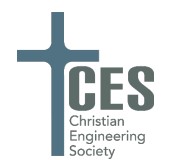Document Type
Paper
Abstract
ABET’s diversity, equity, and inclusion (DEI) can be consistent with Catholic teachings specifically and Bible-rooted Christianity in general, but ABET’s DEI culture is an anti-Christian culture. In this paper I argue that
a) Christians can faithfully fulfill the current legal requirements of ABET DEI
b) ABET supports behaviors that are inconsistent with Christianity (these are not legal ABET requirements, but part of the ABET culture)
c) It is likely that ABET believes anti-Christian practices are part of DEI
d) Even if ABET DEI can be acceptable to Christians, it sends a message that faithful Christians are not welcome
e) While ABET does not currently require anti-Christian practices, ABET’s practices promote a culture that excludes faithful Christians
Creative Commons License

This work is licensed under a Creative Commons Attribution-Noncommercial-No Derivative Works 4.0 License.
Copyright
© 2024 Derek M. Doroski. All rights reserved.
DEI can be Consistent with Catholicism, but it Promotes a Culture that Excludes Faithful Christians
ABET’s diversity, equity, and inclusion (DEI) can be consistent with Catholic teachings specifically and Bible-rooted Christianity in general, but ABET’s DEI culture is an anti-Christian culture. In this paper I argue that
a) Christians can faithfully fulfill the current legal requirements of ABET DEI
b) ABET supports behaviors that are inconsistent with Christianity (these are not legal ABET requirements, but part of the ABET culture)
c) It is likely that ABET believes anti-Christian practices are part of DEI
d) Even if ABET DEI can be acceptable to Christians, it sends a message that faithful Christians are not welcome
e) While ABET does not currently require anti-Christian practices, ABET’s practices promote a culture that excludes faithful Christians

